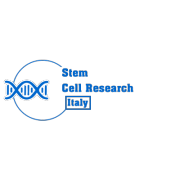

Author(s): Vivek Sharma, Sapna Thakur and Sneh Sharma*
Stem cells are described as the basic components of tissues and organs. These are cells of all multicellular creatures. Stem cells are also known as universal cell. Stem cells have the capacity to develop into a variety of adult cells. Stem cells can be collected from numerous tissues, including bone marrow, amniotic cell adipose tissue, umbilical cord, and placental tissue. The major properties of stem cells that differentiate it from other cells include totipotency and self-renewal. Due to their capacity to develop into the distinct cell types needed for the repair of damaged tissues makes them the ideal choice when tissue and organ transplantation is necessary. Very early embryonic stem cells exhibit to totipotency, but adult stem cells also exhibit multipotency and differential plasticity, which can be used to provide new therapeutic alternatives in the future. Stem cell based treatments have shown significant success in treating genetic blood illnesses, neurodegenerative illnesses like Parkinson’s and Alzheimer’s in human body. They play a vital role in the maintenance, development of our muscles, skin, bones, and other organs. To replace neurons lost during some disease conditions, stem cell give promise in the fight against neurodegeneration. Stem cells are utilized for the treatment of cancer, heart damage, brain damage, blindness and currently have potential contribution in COVID-19 also. Here, we have talked about the role of mesenchymal stem cells therapy in the fight against Corona virus. They have great potential in the regeneration and repairing of damaged tissues, but there is still much to understand about stem cell biology and safety before achieving its full therapeutic potential. Stem cells have immense role in clinical as well as in medical field for the treatment of various diseases. Hence, the current review is focused on the sources, transplantation, applications, role of stem cells in COVID-19, stem cell banking and ethical issues as well as risks related to stem cell research and to make it easier for the reader to comprehend the following chapters.